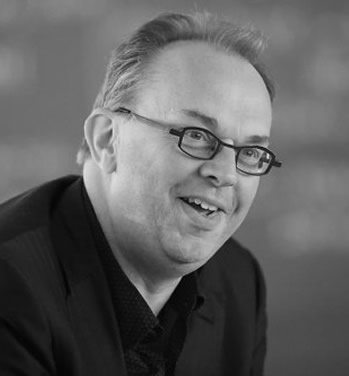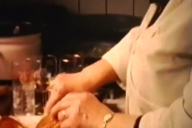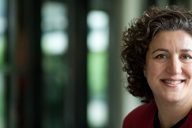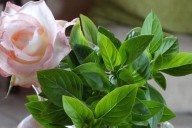 “Cognitive excellence as such does not offer any guarantee towards being a good scientist. Creativity and the courage to follow your intuition are equally important qualities.” This view of professor dr. Peter Hagoort is illustrative of his own groundbreaking contribution to science.
“Cognitive excellence as such does not offer any guarantee towards being a good scientist. Creativity and the courage to follow your intuition are equally important qualities.” This view of professor dr. Peter Hagoort is illustrative of his own groundbreaking contribution to science.
It is election day in The Netherlands and we are delighted to meet professor dr. Peter Hagoort. At present, he is director of the Max Planck Institute for Psycholinguistics and the founding director of the Donders Centre for Cognitive Neuroimaging at the Radboud University Nijmegen. In June 2012 he was awarded the prestigious Academy Professorship Prize for his outstanding and innovative work. This is one of a series of important awards and honors that has been bestowed upon him in recent years. Studying the neurobiological foundations of human language, he was a pioneer in the field of combining psychological theory and neuroscientific models, and his ideas have had an enormous impact on the discipline as such.
Talking to professor Hagoort, who is a member of ARTISA’s Advisory Committee, we come across an inspired, devoted scientist, fascinated by what makes us most human while staying firmly grounded at the same time. A renowned scientist who has managed to hold onto a remarkable level of modesty.
What is the secret to his success? What is needed to be a creative scientist and which connection does he see between science and art? Peter Hagoort: ‘Next to fascination and discipline, creativity is an important aspect in executing scientific research. With our present-day knowledge we have no way of foreseeing which questions will arise nor their solutions. There isn’t such a thing as a recipe that will lead you to new insights and results. Having the courage to travel unknown paths, going off the beaten track is in my opinion essential. I avoid following the common road and popular topics. When something is a hot item I tend to look in the opposite direction, asking myself questions that are overlooked or are seemingly of little to no interest. Other conditions for creativity are not being afraid of making mistakes and having the courage to not be guided by success but continue to ask critical questions and change course.
Of course, I, too, have had my share of frustrations along the way. These never stopped me, however, from doing what I felt to be important. Now, as director of the Donders Institute, I find myself in the luxury position of having many young and highly talented scientists from all over the world working here with us. Some studies are successful, others aren’t. There are nonetheless always results we can use in getting a better grasp on the big jigsaw puzzle we are investigating. Like when doing a jigsaw puzzle with my little daughter one has to envisage the big picture, looking first for the corner pieces, which pieces fit and which don’t…. A fascinating process.
As a scientist I usually relate well to artists. When talking to an artist, I sense much more common ground than e.g. when talking to an accountant. We share this creative process, looking for fresh perspectives and questioning phenomena others take for granted as well as enjoying the urge to experiment. In the context of discovery there are many similarities between science and art. Lateral thinking and practising art is helpful in entering new domains. I used to write poetry [we found some of his beautiful poems on the internet], but unfortuntely lack the time to do so these days. My plan to reserve one evening a week for writing poetry didn’t work out, simply because it requires a certain level of concentration and frame of mind you cannot compel.
Though art can help in this context of discovery it is not the only tool. Talking to my grandmother or a gardener, for instance, biking and accidental encounters can be just as helpful. Having the leeway to follow your intuition and inclination.
In the context of justification art and science are two very different fields, each having their own rules of play. In the Co-op project I worked together with an artist and this is where we did not manage to find common ground. In science we are looking for knowledge; knowledge regulated to rules of verification, validation and the ability to repeat and control results. In art the focal point is on the uniqueness and subjectivity of the experience. Having a set of singular rules of its own. If I were to paint a canvas without being introduced in the domain of art it would not be recognized as a piece of art…
As I stated before: with our present-day knowledge we have no way of foretelling what we will know further along the road and which challenges and questions the future will hold. Who could have predicted the world wide economic crisis or the Al Quaida attack on the USA? If we would have known of the collapse of the Twin Towers we certainly wouldn’t have closed the Arabic faculties in the Netherlands the year leading up to this tragedy. With an ever increasing complex, interdependent global society, developing at an exponentional speed we need a scientific context where dedicated researchers enjoy the freedom to carry out fundamental research and where we value this context of discovery; this we have in common with the arts.
In Germany they understand this principle well. Despite the crisis the Max Planck Institute receives an extra 5 % for doing fundamental research without any constraints. In the Netherlands, however, we have confined scientific research to nine so-called ‘top sectors’; these are to be at the centre of attention and the recipient of all financial resources. Too much focus on valorisation (tailoring academic knowledge and skills for use by society at large) and economic efficiency will affect our scientific immune system. Our immune system protects us against unpredictable and as yet unknown problems and challenges of the future. Needless to say, these challenges are not confined to these nine top sectors.
I am an optimist by nature, but I must confess to worrying about the state our world finds itself in today. My contribution to the world is to hopefully raise awareness, reveal hidden aspects, find ways in how to cope with this complex, unpredictable society. We, human beings, are uncomfortable with chaos (even in our mind) and both instinctively and physically we wish for nothing more than to move out of this sense of confusion as quickly as possible.
You’re asking me what I would like to say to young researchers and PhD students? Know what you don’t know and dare to admit to these limitations. Have an open mind and recognize that you can learn something from that chap in front of you [pointing to himself]. And, simultaneously, question and doubt everything, be adament and courageous enough to follow your own intuition.’












